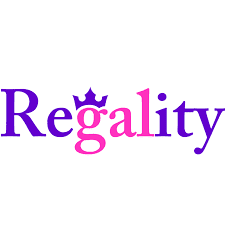Allergies Are Nothing To Sneeze At!
October 6, 2021
Allergies are nothing to sneeze at!
In recent efforts, the world has become more allergy friendly. To begin, allergens are an immune response to a substance–whether that is a food listed as part of the nine major allergens or something more akin to outside elements, such as pollen and animal dander.
When a person has allergies, the immune system makes antibodies that identify a particular allergen as harmful, even though it isn’t. When that person comes into contact with the allergen, the immune system’s reaction can inflame the skin, sinuses, airways, or digestive system. In terms of food, the FDA lists these as the most likely offenders: “milk, eggs, fish, shellfish, tree nuts, peanuts, wheat, soybeans, and sesame.”
In 2004, the FDA passed an amendment called the FALCPA, which targets nutrition labels and the importance in including all major allergies. Elkhart High freshman student Aangee Mehta speaks on her childhood experiences with allergies: “Nutrition labels are absolutely wonderful! Most of the time, I don’t even have to look through the ingredients, because of the allergy warning at the bottom. It makes buying things really easy,” she adds, “and there is less of a risk of missing an ingredient and accidentally consuming what you are allergic to.” As stated, nutrition labels become the saving grace when looking through large lists of ingredients that are written in small print.
From 1960 to 2018, allergies had risen by 7%, which may not seem like a large difference; however, when put into actual numbers, that means there were 490,000,000 million newborns diagnosed with allergies in that sole timeframe. Although scientists are still unsure of why allergies are growing as the population grows, it’s inevitable that allergy menus are going to be needed more and more frequently.
Mehta speaks on the recent attempts to include allergy friendly food items: “I feel that efforts are being made to include gluten free, vegetarian, and milk free options, but not so much for egg free,” she asserts. “Not as many people are either allergic or going egg free, so not many menus have options for egg-free food,” Mehta surmises. “Most bakeries have no egg-free options, and it really limits the choices my family can make to eat out.” Thus, they do more dining in than dining out. “Some grocery stores, like Whole Foods, do have a variety of vegan desserts and snacks,” she adds.
Despite the challenges, experiences in restaurants have become far easier and far more enjoyable for those with allergies than in decades past. As allergies become more frequent and common, however, the more restaurants will have to do to accommodate them–and the more the FDA must enforce properly labeled nutrition facts.




















Janie Boyden • Oct 6, 2021 at 9:46 pm
Nice article. My son has food allergies. When he was younger there were no mandatory labels of allergens in foods. Things are better, but there is room for a lot of improvement in all areas of the food industry. Thanks for bringing awareness to this over-looked issue.